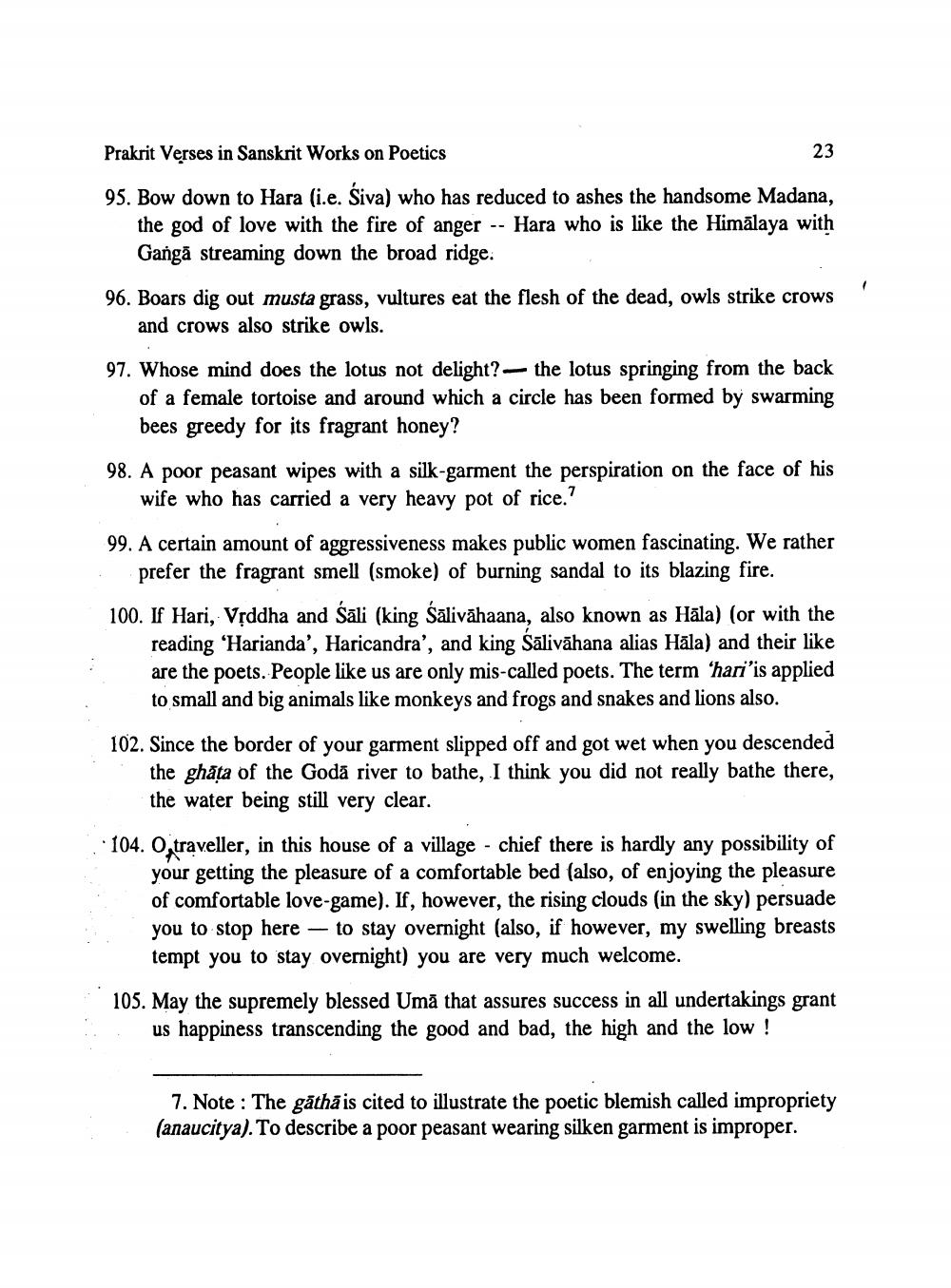________________
Prakrit Verses in Sanskrit Works on Poetics
23
95. Bow down to Hara (.e. Siva) who has reduced to ashes the handsome Madana,
the god of love with the fire of anger -- Hara who is like the Himālaya with Gangă streaming down the broad ridge.
96. Boars dig out musta grass, vultures eat the flesh of the dead, owls strike crows
and crows also strike owls.
97. Whose mind does the lotus not delight? - the lotus springing from the back
of a female tortoise and around which a circle has been formed by swarming bees greedy for its fragrant honey?
98. A poor peasant wipes with a silk-garment the perspiration on the face of his
wife who has carried a very heavy pot of rice.?
99. A certain amount of aggressiveness makes public women fascinating. We rather
prefer the fragrant smell (smoke) of burning sandal to its blazing fire.
100. If Hari, Vrddha and Sāli (king Sālivāhaana, also known as Hāla) (or with the
reading 'Harianda', Haricandra', and king Sālivāhana alias Hāla) and their like are the poets. People like us are only mis-called poets. The term 'hari'is applied to small and big animals like monkeys and frogs and snakes and lions also.
102. Since the border of your garment slipped off and got wet when you descended
the ghāta of the Godā river to bathe, I think you did not really bathe there,
the water being still very clear. 104. O traveller, in this house of a village - chief there is hardly any possibility of
your getting the pleasure of a comfortable bed (also, of enjoying the pleasure of comfortable love-game). If, however, the rising clouds (in the sky) persuade you to stop here - to stay overnight (also, if however, my swelling breasts tempt you to stay overnight) you are very much welcome.
105. May the supremely blessed Umā that assures success in all undertakings grant
us happiness transcending the good and bad, the high and the low !
7. Note : The găthā is cited to illustrate the poetic blemish called impropriety (anaucitya). To describe a poor peasant wearing silken garment is improper.




